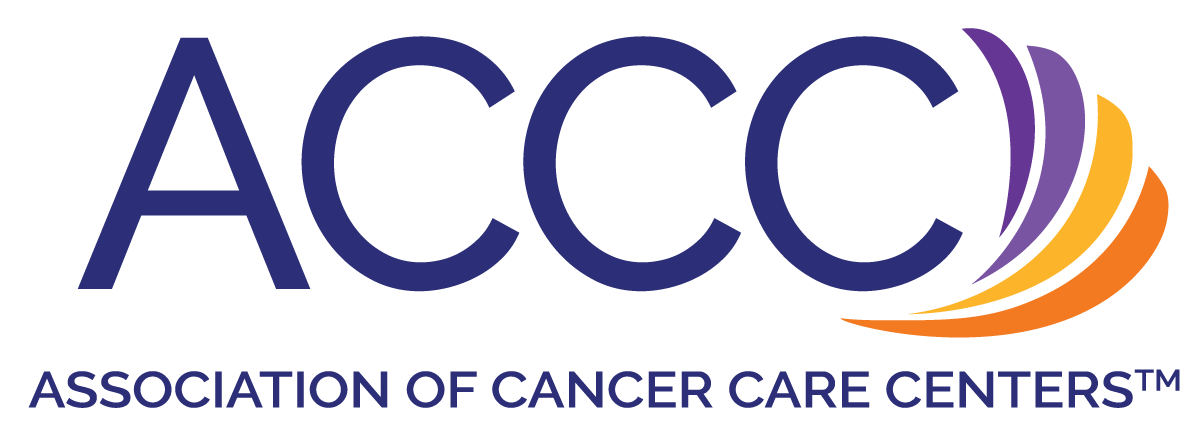
Comprehensive Cancer Care Adds Value—the Challenge Is Paying for It, ACCC Survey Finds

A session moderated by the president of the Association of Community Cancer Centers (ACCC) examined the business case for having oncology pharmacists and oncology social workers on community cancer care teams.
Half the participants in a survey by the Association of Community Cancer Centers (ACCC) reported there were no billing codes for more than a third of the supportive care services that should be provided to deliver Comprehensive Cancer Care, according to a report delivered Friday during the Presidential Session at ACCC’s Annual Meeting & Cancer Center Business Summit.
ACCC President Krista Nelson, MSW, LCSW, OSW-C, FAOSW, program manager of Quality & Research, Cancer Support Services and Compassion, Providence Health & Services, chaired the session with presentations, “Making the Business Case for Hiring an Oncology Social Worker” and “Making the Business Case for Hiring an Oncology Pharmacist,” which featured the survey results, along with perspectives on how social workers and pharmacists can support cancer care teams—and address the issues of health equity that getting long overdue recognition.
“We know that supportive care and comprehensive cancer care is the right thing to do,” Nelson said. “We know that if we pay attention to the issues that impact patients related to social determinants of health, they will have better outcomes.”
Al B. Benson III, MD, FACP, FASCO, professor of Medicine, Robert H. Lurie Comprehensive Cancer Center at Northwestern Medicine, presented the topline results from the survey, which will soon be published. Benson said the reimbursement challenge puts community cancer practices in a quandary, because Comprehensive Cancer Care is required for accreditation yet is hard to fund, as community programs often had less access to philanthropy than academic centers.
“The survey responses demonstrated that programs are not getting reimbursed adequately, and in some cases cannot offer these services at all,” Benson said.
The survey was administered from August 2019 to March 2020 with the following results:
- Of the 704 ACCC member programs, 204 responded and completed the survey.
- 42% respondents were safety-net providers, and 33% were participants in the CMS Oncology Care Model, which has requirements to provide 13 specific services but also makes the practices eligible for monthly payments.
- The survey developers asked participants about 27 specific services required for Comprehensive Cancer Care; 50% of the respondents said 10 of these services had no billing codes and 8 had limited or underutilized billing.
- Even in OCM practices, Benson said, there was a lack of centralization within practices on understanding the essential supportive oncology services.
Role of the oncology pharmacist. Olalekan Ajayi, PharmD, MBA, chief operating officer of Highlands Oncology Group discussed the expanded role of the oncology pharmacist on the cancer care team. Pharmacists are very involved in supportive care, in helping patients and physicians understand potential adverse effects and drug interactions as oncology regimens have become more complex. Pharmacists can take an active roles in practice management as well as formulary management, including promotion of the use of biosimilars to achieve cost savings. But Ajayi said perhaps the greatest focus today is medication adherence, due to the rise in the use of oral oncolytics.
“There’s still so many other things that pharmacists do—in genetic counseling, research,” Ajayi said. “It’s really a very exciting time to be a pharmacist.”
Nelson noted the importance of the oncology pharmacist in research: “If we want to know the clinical trial is valid, we need to know the patients took the medicine.”
Case for social workers. Making the case for funding social work were Jennifer Bires, MSW, LCSW, OSW-C, executive director, Life with Cancer and Patient Experience, Inova Schar Cancer Institute; and Courtney Bitz, MSW, LCSW, OSW-C, director of clinical social work and spiritual care, Department of Supportive Care Medicine, City of Hope.
“Patients are coming to us with more and more struggles,” Bires said. Language differences, unsafe housing, food insecurity, transportation issues—all can interfere with a treatment plan or the ability to communicate with the oncologist.
And it’s not just patients who are stressed. “Medical providers are asked to do more than ever,” Bitz said. When the oncologist is seeing dozens of patients a day, having the social worker available to answer questions can be essential, she said.
The oncology social worker is the primary provider of interventions that can alleviate distress, Bitz said, and these are things can that impact not just the patient but also caregivers. Research shows this does affect health outcomes, she said.
The current focus on health equity makes social workers essential. Sometimes what appears to be an immediate barrier—for example, a person with a substance abuse issue might be denied a certain pain medication—could lead to a broader discussion about using community resources and addressing a patient’s larger needs, Bires said.
Of course, the challenge with social work is funding the staff. Bitz has developed a model that is being replicated elsewhere for funding social work, but in most cases, social work is paid out of the operating budget. Bires said risk stratification is important: not every patient with cancer will be able to see a social worker, but health systems and cancer centers must work to ensure those with the greatest needs get support.
But it’s important that social work be part of a well-conceived plan. Hiring a single social worker to support a huge team of oncologists or a “piecemeal” program will not succeed—and will not generate patient satisfaction or cost savings, according to the panel.
“I think putting supportive care in your business plan from the beginning is one of the most important pieces,” Bires said.
Newsletter
Stay ahead of policy, cost, and value—subscribe to AJMC for expert insights at the intersection of clinical care and health economics.









